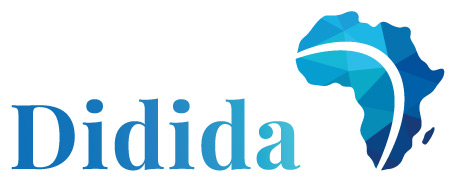Promotion of African Health Innovations: Efforts to Showcase These Innovations in Europe
Introduction
Africa has long been a continent of innovation, resilience, and creativity, especially in the realm of health. Faced with unique challenges, African innovators have pioneered groundbreaking solutions that address the health needs of their communities, often under resource-constrained conditions. However, despite their ingenuity, these innovations frequently remain underrepresented in global health dialogues. Bridging this gap is essential to fostering mutual learning, promoting global health equity, and ensuring the scalability of effective solutions. The Didida project recognizes this imperative and is committed to showcasing African health innovations in Europe, bringing them to the forefront of international attention.
This article delves into the importance of promoting African health innovations, the strategies employed by Didida to elevate these innovations in Europe, and the potential impact of such efforts on global health systems.
The Importance of African Health Innovations
- Addressing Unique Health Challenges: African innovators are adept at developing solutions tailored to their unique epidemiological and infrastructural landscapes. From combating infectious diseases like malaria and HIV/AIDS to addressing the rising burden of non-communicable diseases (NCDs), these innovations are vital for improving health outcomes.
- Resource-Efficient Solutions: Many African health technologies are designed to work in low-resource settings, making them cost-effective and adaptable for other regions facing similar challenges. For instance, the development of solar-powered medical devices and mobile health (mHealth) platforms offers insights into resourceful problem-solving.
- Strengthening Global Health Systems: Incorporating African health innovations into global systems can enhance preparedness and resilience against global health threats. The COVID-19 pandemic underscored the interconnectedness of health systems worldwide, highlighting the need for inclusive innovation.
Efforts by the Didida Project
The Didida project, funded by the European Union and UKRI, aims to support local manufacturing of diagnostic technologies in Africa and amplify the voices of African innovators. Key initiatives include:
- Development of a Multiplex Diagnostic Tool: The Didida project’s core innovation is a multiplex diagnostic tool that is affordable, user-friendly, and capable of diagnosing multiple diseases simultaneously. This tool exemplifies African ingenuity, incorporating advanced technology that addresses critical diagnostic gaps.
- Capacity Building: Through Training Didida’s emphasis on training 17 African PhD students underscores its commitment to fostering local talent. These students are pivotal in advancing health innovations, conducting research on socio-economic aspects of digital health, zoonoses, and the interplay between NCDs and infectious diseases.
- Citizen Engagement Events: By organizing hackathons, public outreach initiatives, and educational campaigns in African countries, Didida promotes local ownership of health innovations and engages communities in their adoption and dissemination.
- Strategic Dissemination in Europe: Recognizing Europe as a hub for international partnerships and funding opportunities, Didida actively seeks to showcase African health innovations to European audiences through conferences, collaborations, and public-private partnerships.
Showcasing African Innovations in Europe
- Participation in International Conferences: Didida actively participates in global health conferences, presenting African health innovations to diverse stakeholders. These engagements highlight the contributions of African PhD students and foster cross-continental networking.
- Business Events for Technology Transfer: The project organizes targeted business events across Africa, connecting African innovators with regional investors, manufacturers, and policymakers. These events aim to facilitate technology transfer, licensing deals, and collaborative research.
- Public-Private Partnerships (PPPs): By engaging both public and private entities in Europe, Didida promotes the integration of African health technologies into existing infrastructures. These partnerships help to scale innovations and ensure their sustainability.
Key Success Stories
- Recognition of African Researchers: The PhD students supported by Didida have presented their research at prestigious European conferences, receiving accolades for their contributions. This recognition not only boosts their careers but also enhances the credibility of African health innovations.
- Collaborative Innovation Models: African and European teams have co-developed enhancements to Didida’s diagnostic tool, integrating artificial intelligence for data analysis. This collaboration exemplifies how cross-continental partnerships can drive innovation.
Challenges and Opportunities
Challenges
- Perceptions and Bias: African innovations often face skepticism due to entrenched biases and misconceptions about the continent’s capabilities.
- Funding Gaps: Despite significant progress, securing sustained funding for the promotion of African innovations remains a challenge.
- Regulatory Hurdles: Adapting African health technologies to meet European regulatory standards can be time-consuming and costly.
Opportunities
- Global Health Crises: The COVID-19 pandemic has heightened interest in scalable, cost-effective solutions, creating opportunities for African innovations.
- Growing Focus on Equity: The global health community’s increasing focus on equity and inclusivity provides a conducive environment for showcasing African contributions.
- Technological Advancements: Advances in digital health and artificial intelligence open new avenues for integrating African solutions into global health systems.
The Way Forward
To ensure the sustained promotion of African health innovations in Europe, Didida and similar initiatives must:
- Strengthen Communication Strategies: Leveraging storytelling, social media, and public relations campaigns can help to counter biases and highlight the value of African innovations.
- Expand Strategic Partnerships: Building alliances with European institutions, NGOs, and the private sector can amplify the reach and impact of African health technologies.
- Foster Capacity Building: Investing in training programs, mentorship, and knowledge exchange initiatives will empower African innovators and researchers to lead on the global stage.
- Advocate for Policy Changes: Engaging with European policymakers to streamline regulatory processes and create incentives for adopting African innovations is crucial.
Conclusion
The promotion of African health innovations in Europe is more than a strategic objective; it is a moral imperative to achieve global health equity. The Didida project’s efforts to showcase African ingenuity underscore the value of cross-continental collaboration and the transformative potential of inclusive innovation. By bridging gaps and fostering mutual respect, these efforts pave the way for a future where health solutions transcend borders, benefiting communities worldwide.
Want to know more?
Are you a student and you want to learn more? A researcher seeking to consult our publications? A citizen eager to better understand the issues? A decision-maker who can promote this innovation? A journalist looking for an engaging story to tell?
